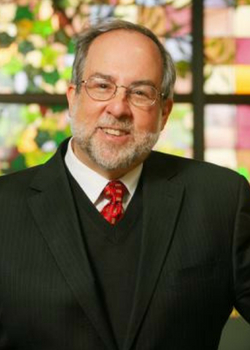We leave well before dawn and as we speed toward daybreak I keep asking myself how it is that I'm now the parent of a college student. After all, I can still remember vividly the details of my own freshman year so many years ago.
Arriving at the college, we locate the information booth, obtain assignments, keys and instructions, and begin the ritual of moving in. Cardiac-challenged fathers shlep heavy boxes up three flights of crowded stairs. ("Do you really need all this stuff?") and nervous mothers carefully lay socks and underwear into dresser drawers. ("Remember to keep colors and whites separate when you wash these!") Kids roll their eyes and protest, but we persist. All the while, the roommate - who bears a striking resemblance to the Unabomber - lolls unkempt on his messy bed, stroking a battered guitar and looking on scornfully.
When everything that can be done for the kid has been done - the bed made, the electronics hooked up, textbooks laid out on shelves - the child is anxious to run off to the dorm orientation meeting and begin life as a collegian, but we hold on tightly for one more moment. Moms' eyes fill with tears. Dads compulsively reach into a wallet for a few dollars to give the kid. Some words are called for. But what do you say? What final bit of wisdom before sending our child into the world as an independent adult? What hopes, threats, advice, sermons, culled from eighteen years of living in my house should I share as we stand together in the dormitory doorway?
This is the pathos of Deuteronomy. Moses raised this generation of young, free Israelites. He nurtured them, taught them, guided them through the wilderness. Now he must let go. But he is afraid of losing them, as he lost their parents - losing them to their fears and baser instincts, losing them to the pernicious influences that will surround them, losing them to the accidents of history. Moses' parental anxiety is felt in every line of Deuteronomy. This is a book of urgency. He speaks to them this one last time, pleading at every moral level. He appeals to their powers of moral reasoning, and to their shared ideals and values. He reminds them of their past, the ordeals and dreams of ancestors, the covenant freely upheld by forefathers. He invokes the power of public reputation and exalts them as "God's children" (Deut 14:1). And then, exhausting all other means of persuasion, he evokes primitive rewards and punishments: "If you do obey these rules and observe them carefully, the Lord your God will maintain faithfully for you the covenant that He made on oath with your fathers: 13He will favor you and bless you and multiply you; He will bless the issue of your womb and the produce of your soil, your new grain and wine and oil..." (Deut 8:12-13)
I know this Moses. Every parent who has ever dropped a kid off at school knows this Moses. Bar and Bat Mitzvah may be the traditional moment our children are recognized as adults, but the moment it becomes real is when our children move out of our homes and into the universe via the university -- the doorway to an inviting universe of cultures, ideas, arts and sciences. There, they will meet every manner of lifestyles, political opinion, personal values, and spirituality, from the conventional to the radical. The typical university academic catalog is breathtaking in the breadth, variety, and ingenuity of its opportunities. Campus bulletin boards are laden with flyers, notices, posters, cajoling their participation, inviting membership in every sort of society and cause. Chabad, Greenpeace, the PLO, the Vegan Union, and the Young Republicans are curiously juxtaposed on the campus quad. Young people set off to university filled with all their parents' values, aspirations, and ideals. But when they return home, they are very different. University life has a way of washing youngsters clean of all their parents' enculturation. By year's end, they will be different. There will be a new hair style, perhaps a new piercing or tattoo, a new style of eating, new politics, new religious ideas, new personal values, a new identity. They will still be our children, but they will not belong to us in the same way. I know Moses' anxiety. "Take care lest you forget the Lord your God and fail to keep His commandments. When you have eaten your fill, and have built fine houses to live in, 13and your herds and flocks have multiplied, and your silver and gold have increased, and everything you own has prospered, 14beware lest your heart grow haughty and you forget the Lord your God ... and you say to yourselves, "My own power and the might of my own hand have won this wealth for me." " (Deut 8:11, 12, 17)
So as we stand awkwardly in the dormitory doorway, what shall we say to them? There are new, creative rituals penned for this occasion. But the moment demands words more deeply personal - my own wisdom, my own feelings, my Deuteronomy. Then let the child go. Remembering that I am commanded not to let my fears inhibit their freedom to explore and experience the universe. And to trust in the character and soul I've nurtured these eighteen years.
Have a good year at school and remember we love you.

